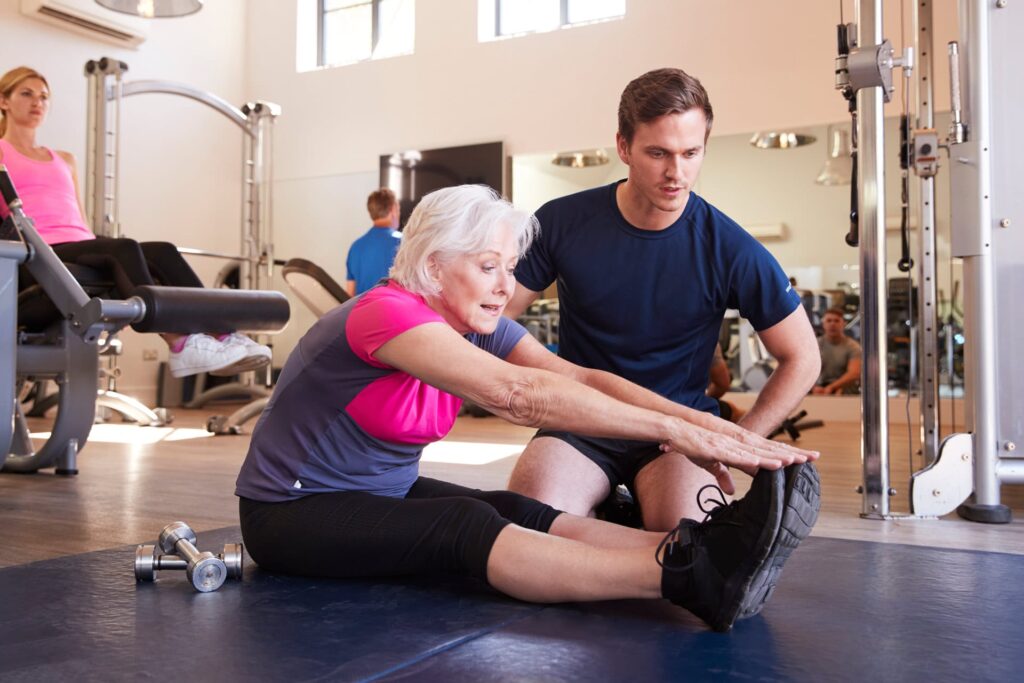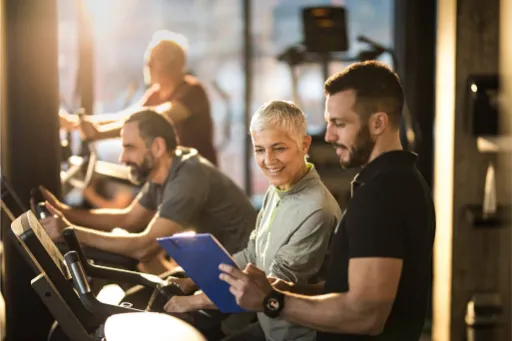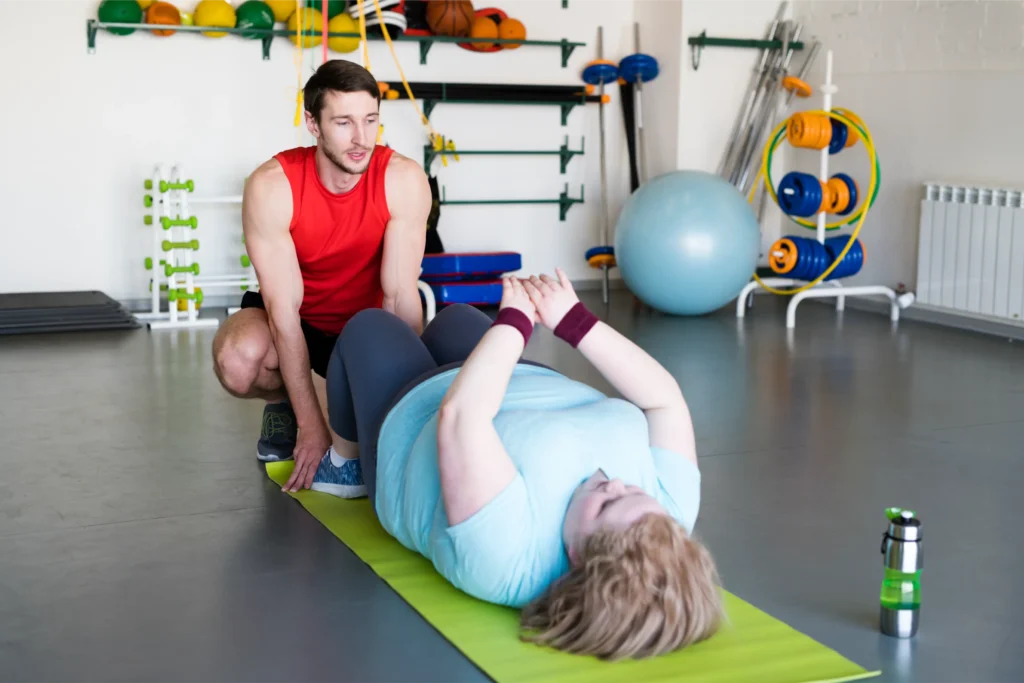Personal Training for Seniors: Empowering Older Adults to Live Their Best Lives

As the population ages, more and more older adults are recognizing the importance of staying active, healthy, and engaged in their later years. While the benefits of regular exercise are well-documented for people of all ages, seniors often face unique challenges and considerations when it comes to starting or maintaining a fitness routine. This is where personal training for seniors comes in – a specialized approach to fitness coaching that takes into account the specific needs, goals, and limitations of older adults. In this article, we’ll explore the world of personal training for seniors, including its benefits, challenges, and best practices for empowering older adults to live their best lives.
The Benefits of Personal Training for Seniors
Engaging in regular physical activity is one of the most powerful ways for seniors to maintain their health, independence, and quality of life as they age. Some of the key benefits of personal training for seniors include:
- Improved strength, balance, and mobility
- Reduced risk of chronic diseases such as heart disease, diabetes, and osteoporosis
- Enhanced cognitive function and memory
- Increased energy and vitality
- Greater confidence and sense of well-being
By working with a qualified personal trainer who specializes in senior fitness, older adults can develop a safe, effective, and enjoyable exercise program that is tailored to their individual needs and goals. This personalized approach can help seniors overcome barriers to exercise, such as fear of injury or lack of confidence, and provide the support and accountability needed to make lasting lifestyle changes.
Understanding the Unique Needs and Considerations of Senior Clients
To effectively serve senior clients, personal trainers must have a deep understanding of the unique physical, mental, and emotional needs and considerations of older adults. This includes:
- Age-related changes in muscle mass, bone density, and cardiovascular function
- Common chronic conditions such as arthritis, osteoporosis, and heart disease
- Medications and their potential impact on exercise response
- Cognitive and sensory changes that may affect learning and communication
- Psychosocial factors such as social isolation, depression, and fear of falling
By taking a holistic approach to senior fitness that addresses these multifaceted needs and considerations, personal trainers can create a welcoming, supportive, and empowering environment that helps older adults feel confident, capable, and motivated to pursue their health and wellness goals.

Designing Safe and Effective Exercise Programs for Seniors
One of the key challenges of personal training for seniors is designing exercise programs that are both safe and effective for older adults. This requires a deep knowledge of age-appropriate exercise selection, progression, and modification, as well as an understanding of the common risks and contraindications associated with senior fitness.
When designing exercise programs for seniors, personal trainers should focus on the following key components:
- Functional movements that simulate activities of daily living
- Exercises that promote balance, stability, and fall prevention
- Resistance training to maintain muscle mass and bone density
- Cardiovascular exercise to improve heart health and endurance
- Flexibility and mobility work to maintain range of motion and reduce pain
By incorporating these elements into a well-rounded, progressive exercise program, personal trainers can help seniors improve their overall health and function, while minimizing the risk of injury or overexertion. It’s also important to start slowly, gradually increase intensity and duration over time, and provide plenty of rest and recovery between sessions.
Building Rapport and Trust with Senior Clients
Another critical aspect of personal training for seniors is building strong, trusting relationships with older adult clients. Many seniors may feel intimidated, self-conscious, or skeptical about starting an exercise program, and it’s up to the personal trainer to create a warm, welcoming, and non-judgmental environment that puts them at ease.
To build rapport and trust with senior clients, personal trainers should focus on the following key strategies:
- Active listening and empathy to understand clients’ needs, concerns, and preferences
- Clear, patient communication that avoids jargon or technical language
- Positive reinforcement and celebration of progress and successes
- Adaptability and flexibility to modify workouts based on clients’ energy levels or limitations
- Genuine interest and concern for clients’ overall well-being and quality of life
By prioritizing these relationship-building skills alongside their technical expertise, personal trainers can create a strong foundation of trust and rapport with their senior clients, which can lead to greater adherence, satisfaction, and long-term success.
Empowering Seniors to Take Charge of Their Health and Well-Being
Ultimately, the goal of personal training for seniors is not just to help older adults improve their physical fitness, but to empower them to take charge of their overall health and well-being. By providing the knowledge, skills, and support needed to make lasting lifestyle changes, personal trainers can help seniors feel more confident, capable, and in control of their lives.
To empower senior clients, personal trainers should focus on the following key strategies:
- Education and coaching on healthy lifestyle habits such as nutrition, sleep, and stress management
- Goal-setting and action planning to help clients identify and pursue their own priorities and aspirations
- Encouragement of self-efficacy and self-care practices to promote independence and autonomy
- Connection to community resources and support systems to address social and emotional needs
- Celebration of progress and successes, no matter how small or incremental
By taking a holistic, empowerment-based approach to senior fitness, personal trainers can help older adults not only improve their physical health and function, but also enhance their overall sense of purpose, meaning, and vitality in their later years.

The Rewards and Challenges of Personal Training for Seniors
Personal training for seniors can be an incredibly rewarding and fulfilling career path for fitness professionals who are passionate about making a difference in the lives of older adults. The opportunity to help seniors maintain their independence, reduce their risk of chronic disease, and improve their overall quality of life is truly priceless, and the relationships formed through this work can be deeply meaningful and long-lasting.
At the same time, personal training for seniors also comes with its own unique set of challenges and considerations. These may include:
- Navigating complex medical histories and health conditions
- Adapting to cognitive or sensory changes that may affect communication or learning
- Dealing with scheduling or transportation issues that may affect session attendance
- Providing emotional support and encouragement to clients facing age-related losses or transitions
- Staying up-to-date with the latest research and best practices in senior fitness
To thrive in this field, personal trainers must be patient, compassionate, and willing to go above and beyond to meet the diverse needs of their senior clients. They must also be committed to ongoing education and professional development to ensure they are providing the highest quality of care and service.
Making a Difference in the Lives of Older Adults
Personal training for seniors is more than just a job – it’s a calling to make a profound difference in the lives of older adults. By empowering seniors to take charge of their health and well-being, personal trainers can help them live longer, happier, and more fulfilling lives, while also reducing the burden of chronic disease and disability on society as a whole.
If you’re a fitness professional who is passionate about working with older adults, personal training for seniors may be the perfect career path for you. By combining your technical expertise with a deep commitment to empathy, compassion, and empowerment, you can create a truly transformative experience for your senior clients, and make a lasting impact on their lives and the lives of those around them.
So, if you’re ready to make a difference in the world of senior fitness, embrace the challenges and rewards of this noble profession, and trust in the power of movement, connection, and lifelong learning to transform lives. The world needs more dedicated, passionate, and heart-centered personal trainers like you, and the seniors in your community are waiting for you to help them unlock their full potential and live their best lives.
Interested in personal training for seniors?
If you’re contemplating a career as a personal trainer, then feel free to reach out to our team to discuss your options. The College of Health and Fitness has fitness courses that are suitable and we’re happy to discuss your options.
THE TOP TEN BENEFITS OF BECOMING A PERSONAL TRAINER:
- Helping others achieve their fitness goals
- Flexible work schedule
- Career growth opportunities
- Become your own boss
- Continuous learning and development
- Networking opportunities
- Active and healthy lifestyle
- Emotionally rewarding work
- Variety in the work environment
- Potential for specialisation
